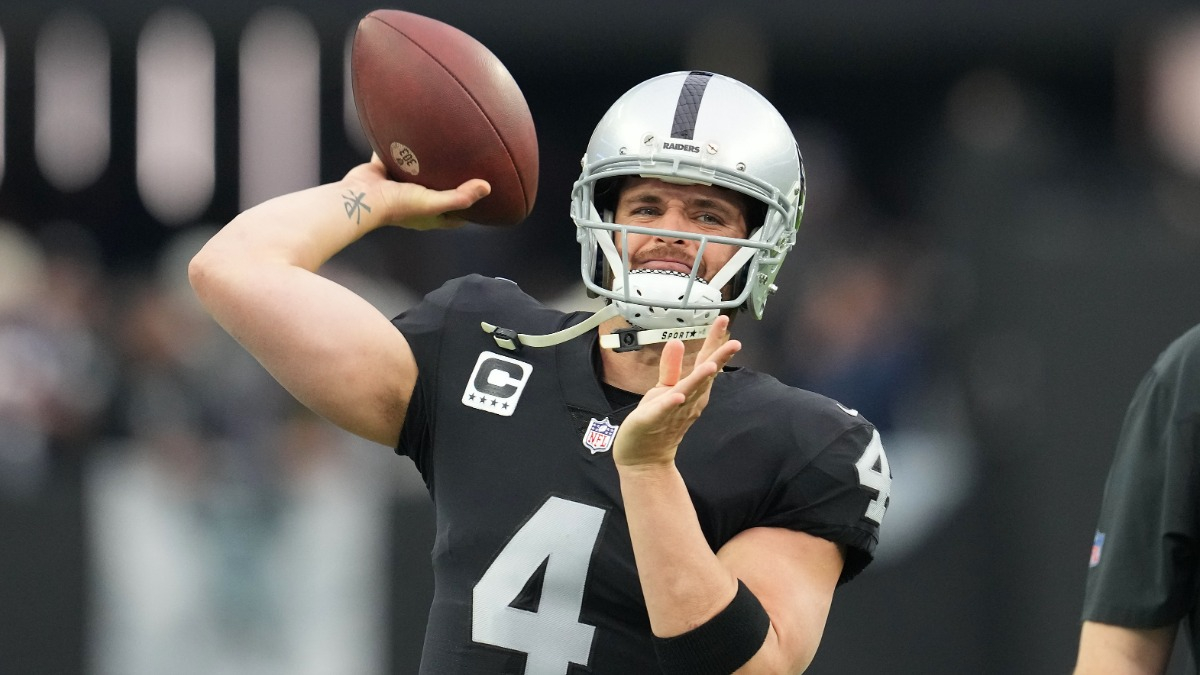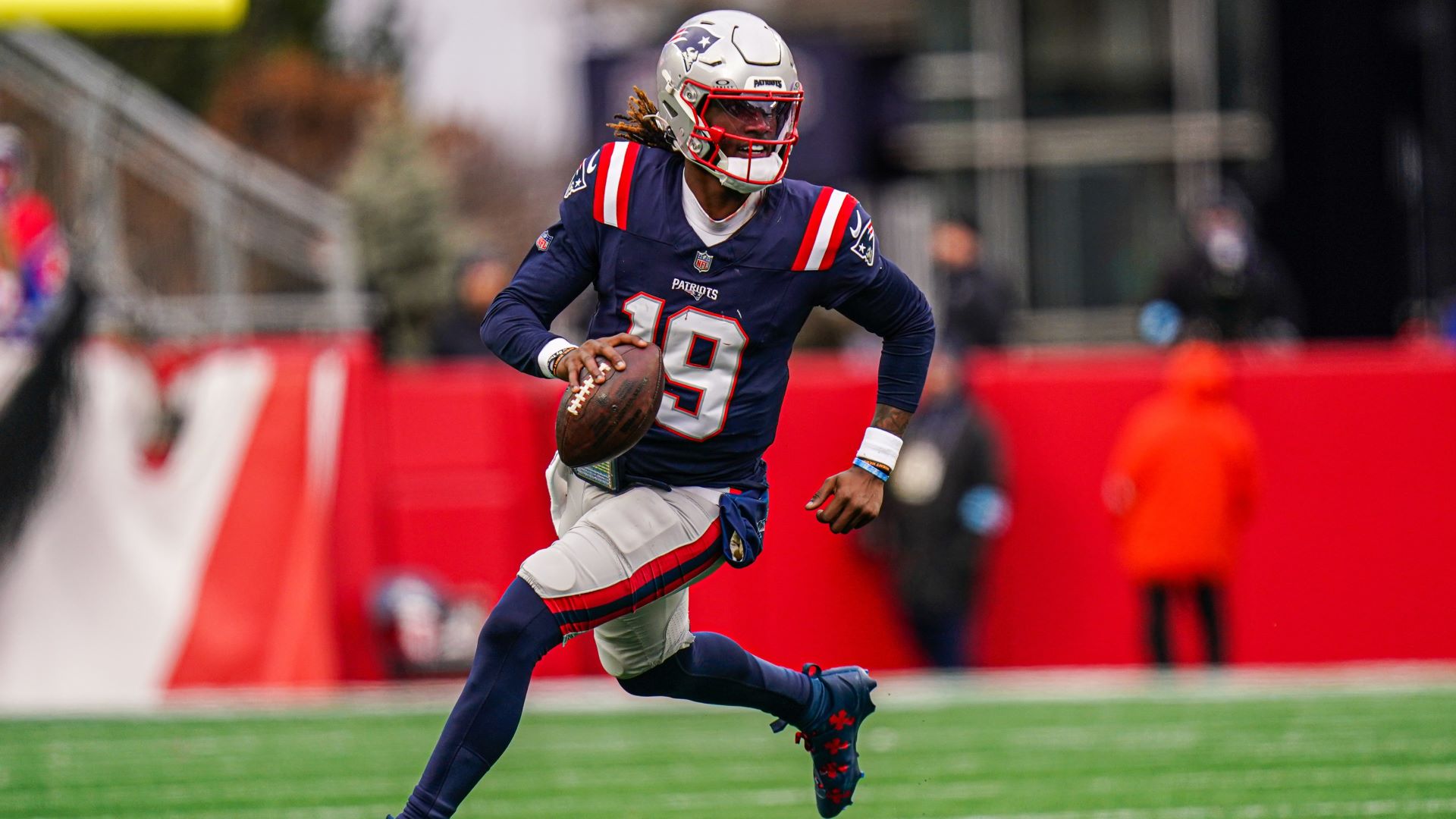Some believe the New England Patriots should consider moving on from Mac Jones this offseason while adding Derek Carr, who appears to be in his final days as a member of the Las Vegas Raiders. We would strongly advise against such a plan, but we've been wrong before.
But if the Patriots wanted to acquire Carr this offseason, could they even do it?
Absolutely. Honestly, there isn't much stopping them from doing it beyond Carr's no-trade clause and whatever possible internal issues would be created by making such a franchise-altering move. But if New England wants Carr, it should be able to get him.
First, let's go over the contract, which is kinda confusing.
Carr last offseason signed a three-year extension worth $121.5 million, including $65.2 million guaranteed -- $25 million of which was guaranteed at signing. The extension officially kicks in next season and runs through 2025.
However, the key date is Feb. 15, three days after Super Bowl LVII. On that day, Carr must be paid the remaining $40 million in guaranteed money, $33 million of which is his 2023 base salary with the other $7.5 million being a portion of his 2024 pay. Carr is due no guaranteed money in 2025.
So, one way or another, Carr likely will be on the move by Feb. 15.
The Raiders could release or trade him before that date with minimal financial ramifications. Vegas only would be on the hook for a $5.6 million dead salary cap hit in 2023 so long as Carr is off the roster by June 1. If it waits to do so after Feb. 15 but before June 1, it'll absorb the same dead cap hit but also have to pay Carr the $40 million. Doing so after June 1 would result in dead cap hits of $1.87 million in 2023 and $3.75 million in 2024.
But it almost certainly won't get to that point. The Raiders clearly don't want to pay Carr that $40 million, which would become automatically guaranteed if he suffered a major injury before the end of this season. If you're wondering why the Raiders benched Carr with two games left despite not yet being eliminated from postseason contention, look no further.
The question is whether the Patriots -- or any team, for that matter -- would want to both trade assets and agree to pay $40 million for Carr, who is an average starter that probably isn't franchise-quarterback material. McDaniels and the Raiders clearly don't think he is.
Given the financial commitment, Vegas likely wouldn't expect much in return for Carr. Your guess on hypothetical compensation is as good as ours, but a mid-round pick (say, a conditional fourth-rounder) might do the trick.
Additionally, although a trade could be agreed upon in February (remember: the Matthew Stafford trade was worked out in late January of 2021), it can't be official until the start of the new league year: Wednesday, March 15. Some teams might be wary of something blowing up the trade during the month in between, like Carr changing his mind on his no-trade clause. Plus, again, Carr might not be worth the total trade and financial compensation.
(And, yes, even though a trade wouldn't become official until March 15, a team acquiring Carr still would be on the hook for $40 million so long as the trade was agreed upon before Feb. 15.)
So, the Raiders might have no choice but to release him. If the Patriots are going to acquire Carr, this feels like the only scenario in which it happens.
It's difficult to see New England moving Jones (who's on an affordable rookie contract), especially given how team owner Robert Kraft feels about him. It's even harder to envision the Patriots doing so in favor of trading for Carr and paying him a ton of money. This just isn't how Bill Belichick and company operate.
But trading Jones and signing Carr once he becomes a free agent? That's more plausible, even though we still think it's an awful idea.






